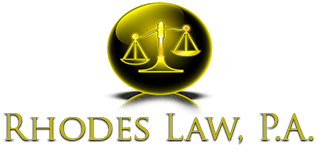The Caregiver Cafe
Ruth C. Rhodes • February 8, 2023

Tuesday, February 28th, 2023
6:00 - 8:00 p.m.
RSVP Required 321-253-4430
Joe's Club - Melbourne
You might also like

Guardianship planning is one of those topics many people know they should address—but often put off because it feels heavy, legal, or emotionally charged. Whether you’re thinking about your children, an aging parent, a loved one with disabilities, or even your future self, starting early is an act of care and responsibility. The good news? You don’t have to do everything at once. Here’s a clear, approachable way to begin. What Is Guardianship Planning, Really? At its core, guardianship planning is about deciding who would make decisions if someone cannot make them for themselves . This might involve: Minor children , if parents are unable to care for them Adults with disabilities or special needs Older adults who may lose capacity over time Your own future , in case of illness or incapacity A guardian may be responsible for personal decisions (healthcare, education, living arrangements), financial decisions , or both. Because guardianship often involves court oversight and limits legal rights (especially for adults), thoughtful planning is essential. Clarify the Situation Start by answering a few basic questions: Who might need a guardian? Is this planning for the future, or is there an immediate concern? What kinds of decisions would need support—personal, financial, or both? Being clear about the why helps guide every other decision. Know the Alternatives Guardianship is not always the first or best solution—especially for adults. Depending on the situation, less restrictive options may work just as well, including: Financial power of attorney Healthcare proxy or medical power of attorney Supported decision-making agreements Trusts (particularly special needs trusts) Representative payees for government benefits Exploring these options early can preserve independence while still providing protection. Choose Potential Guardians Carefully This is often the hardest—and most important—part. When considering someone, think about: Their values and judgment Emotional and financial stability Willingness and ability to take on the role Relationship with the person needing care Location and availability Always have an open conversation before naming someone. And don’t forget to name backup guardians . Put Your Wishes in Writing Good intentions aren’t enough—your wishes need to be documented. Depending on your situation, this may include: A will naming guardians for minor children Standby guardianship forms Powers of attorney and healthcare directives A letter of intent (not legally binding, but incredibly valuable) A letter of intent can explain daily routines, medical needs, education preferences, values, and personal wishes—things no legal form ever captures well. Work with the Right Professional Guardianship laws vary widely by location, so professional guidance matters. Look for: Estate planning attorneys Elder law attorneys Special needs planning attorneys (if applicable) They can help ensure your plan is legally valid, up to date, and tailored to your situation. Review and Update Regularly Life changes—and your plan should too. Revisit guardianship decisions: Every few years After major life events (births, deaths, moves, divorce) If a guardian’s circumstances change A plan that once made perfect sense may not always be the best fit. Final Thoughts Guardianship planning isn’t about predicting the worst—it’s about protecting the people you care about and giving yourself peace of mind. Starting small, asking the right questions, and documenting your wishes can make all the difference when it matters most. If you take only one step today, let it be this: start the conversation . Call Rhodes Law, P.A. today at 321-610-4542 ! The rest can follow, one thoughtful decision at a time.

Estate planning is one of the most important steps you can take to protect your assets, provide for loved ones, and ensure your wishes are honored. Yet many people wonder: Do you really need an attorney to create an estate plan? The short answer is not always—but in many situations, having an experienced estate planning attorney can make a significant difference. Let’s explore both sides so you can make an informed decision. What Is Estate Planning? Estate planning involves preparing legal documents that outline how your assets, healthcare decisions, and responsibilities should be handled if you become incapacitated or pass away. This often includes: A will A trust Power of attorney Healthcare directives Guardianship designations Beneficiary planning These tools help minimize conflict, reduce taxes and fees, and ensure your wishes are carried out smoothly. Can You Do Your Own Estate Planning? Technically, yes. Many basic estate planning documents can be created without an attorney through online platforms or fill-in-the-blank forms. DIY Estate Planning May Be Sufficient If: You have a small or simple estate You have straightforward wishes You don’t own property in multiple states You don’t have significant investments or business assets You're comfortable using online legal templates For some people, a simple will or beneficiary designation may be enough—and these can be done without legal representation. However, DIY estate planning does come with risks. The Risks of Doing Estate Planning Without an Attorney Estate planning laws vary widely from state to state, and small mistakes can create big problems. Errors often aren't discovered until it’s too late—when loved ones are already dealing with grief and legal complications. Common Risks Include: Documents that are not legally valid Improper witnessing or notarization Conflicts between documents (for example, a will vs. a beneficiary form) Unintended tax consequences Leaving assets unprotected Creating confusion or disputes among heirs Failing to plan for incapacity Even a minor oversight can lead to expensive court involvement, delays, and family conflicts. When You Should Hire an Estate Planning Attorney Working with an attorney is especially important if your situation is more complex or if you want full peace of mind. An Attorney Is Strongly Recommended If: You own multiple properties or a business You are part of a blended family You have minor children or dependents with special needs You want to create a trust You expect potential family conflict You have significant assets You want to reduce estate taxes or protect assets long-term You’re unsure how to structure your plan An attorney can help you avoid mistakes, ensure your documents comply with state law, and customize your plan to your needs—something DIY documents cannot do. Benefits of Working With an Estate Planning Attorney Personalized Guidance An attorney helps you clarify your goals and creates a plan that aligns with your specific financial, family, and medical needs. Legal Expertise Estate laws change, and a lawyer ensures your plan remains compliant and effective. Comprehensive Planning Beyond a will, an attorney helps you create a full plan that covers incapacity, healthcare decisions, asset protection, and more. Reduced Stress for Loved Ones A proper legal plan helps prevent confusion, delays, and financial burdens for your family. Long-Term Support Attorneys can update your documents as life changes—marriage, divorce, children, new assets, and more. So, Do You Have to Hire an Attorney? No—you are not legally required to hire an attorney for estate planning. But should you? That depends on your goals and the complexity of your situation. For simple estates, DIY options might be enough. For anything more involved—or if you simply want the reassurance of knowing everything is done correctly—an attorney offers valuable protection and peace of mind. Final Thoughts Estate planning is more than just paperwork—it’s a gift of clarity and security for the people you care about most. Whether you choose to create your documents on your own or work with an attorney, the most important step is simply getting started. Although Florida doesn’t require an attorney for estate planning, working with one is highly recommended. An attorney can ensure your documents are legally sound, reflect your wishes clearly, and comply with Florida law. So, call Rhodes Law, P.A. at 321-610-4542 and help to safeguard your interests and minimize the potential for disputes among heirs.

Medicaid: Who Is Eligible? Good question. It depends — there's no single “Medicaid age” that applies to everyone. Eligibility depends on income , age , state , whether you’re a parent , disability , etc. Here’s how it generally works and how you can sign up. Who Is Eligible for Medicaid Medicaid covers: children, low-income adults, pregnant women, people with disabilities, and older adults. ( USAGov ) Under the Affordable Care Act (ACA), many states have expanded Medicaid to cover most low-income adults under age 65. ( Medicaid ) For people 65+ or those who are disabled, there are different rules (often linked to Social Security/SSI). ( Medicaid ) Non-financial eligibility also matters: you typically need to be a resident of the state you’re applying in. ( Medicaid ) At What Age Can You Sign Up Children : Medicaid (or CHIP) often covers children up through their teen years, depending on state income limits. ( Medicaid ) Adults under 65 : If your state has expanded Medicaid, adults under 65 with low income may qualify. ( Medicaid ) 65 and older : Older adults with low income can also qualify, sometimes in combination with Medicare. ( Medicare.org ) Disability : If you have a qualifying disability, you might be eligible at any adult age. ( Medicaid ) How to Sign Up for Medicaid Here are the main steps to apply: Check Your State’s Medicaid Agency Since Medicaid is run by states, the first place to check is your state Medicaid office. ( USAGov ) Apply Through the Health Insurance Marketplace You can apply via HealthCare.gov . If someone in your household might qualify, your application can be forwarded to your state’s Medicaid agency. ( HealthCare.gov ) Call the Marketplace at 1-800-318-2596 if you want help. ( HHS ) Apply Directly Through Your State Many states let you apply online, by mail, over the phone, or in person at a local Medicaid office. ( ACL ) You’ll need documents like: name, date of birth, Social Security number, proof of income, proof of citizenship or legal residency, proof of state residence. ( USAGov ) What Happens After You Apply Once you're found eligible, coverage can start either on the date of application or at the beginning of that month, depending on your state. ( Medicaid ) In many places, Medicaid can cover you retroactively (for up to 3 months before you applied) if you were eligible during that time. ( Medicaid ) Things to Watch Out For State Differences : Because rules vary by state, what qualifies in Florida (or wherever you are) might be different than in another state. Renewal : Medicaid coverage isn’t always permanent — you may have to renew periodically. ( USAGov ) Documentation : Missing paperwork can delay your application. Make sure you gather all required documents before you apply. Get Help : If the process seems confusing, you can get help from “navigators” or local health‑care assistance organizations. Medicaid is a medical assistance program that ensures access to healthcare for low-income individuals and families. It also helps seniors and people with disabilities cover the costs of skilled nursing care, as well as other medical and long-term care expenses. Ruth C. Rhodes provides guidance to clients on qualifying for, obtaining, and maintaining Medicaid benefits. She employs a variety of legal strategies and instruments designed to protect and preserve assets while maintaining Medicaid eligibility. Ruth advises clients on the most suitable long-term care and living arrangements for their specific circumstances. Additionally, she creates personalized plans for clients and their families, helping them manage personal and financial resources effectively to achieve their long-term goals as their loved ones age. For assistance, call Rhodes Law, P.A. at 321-610-4542 and let Ruth and her team create a personalized plan for you and your family!

